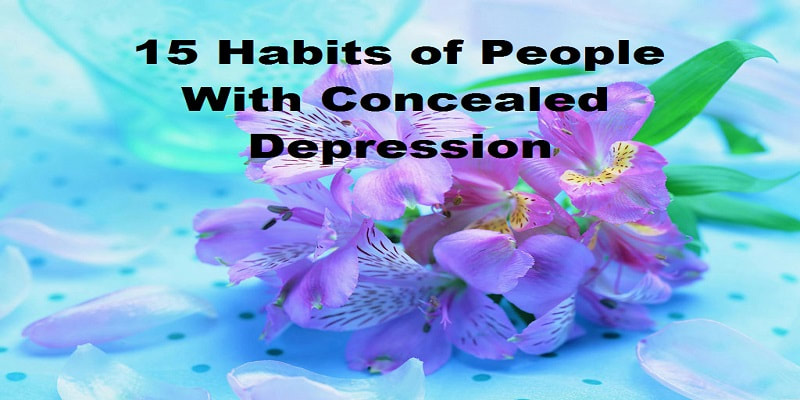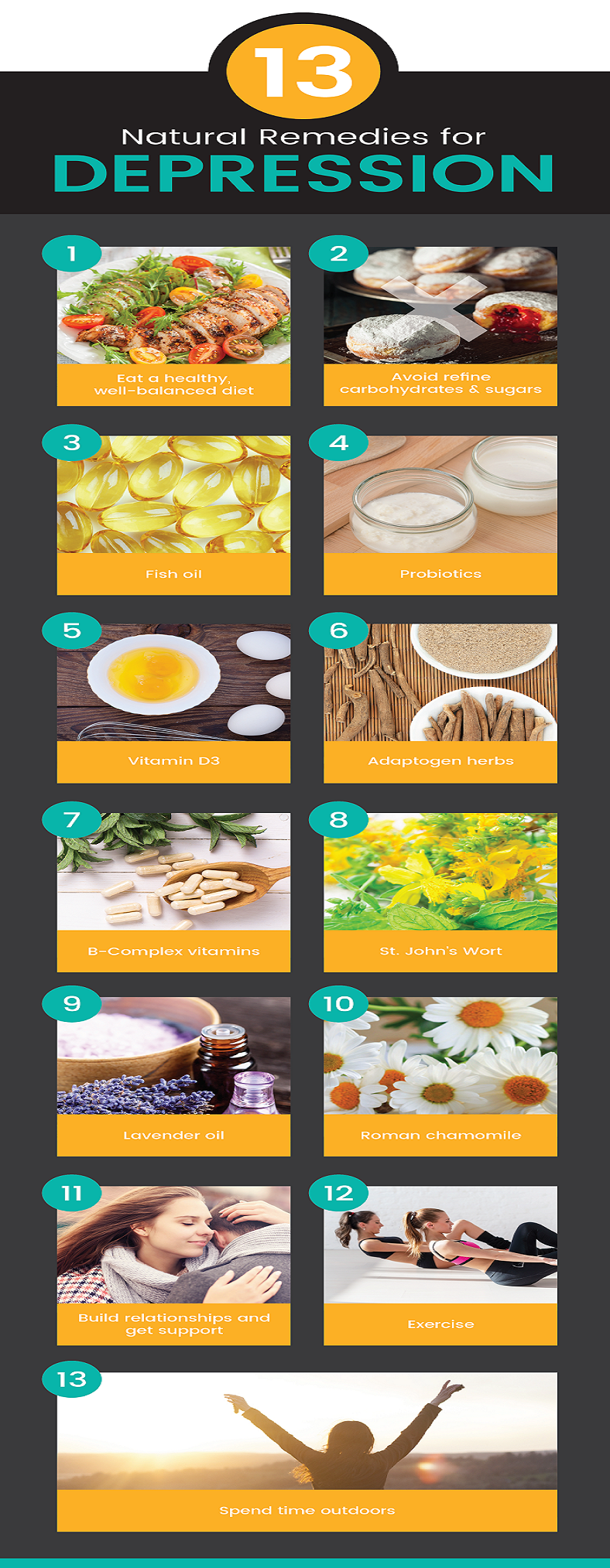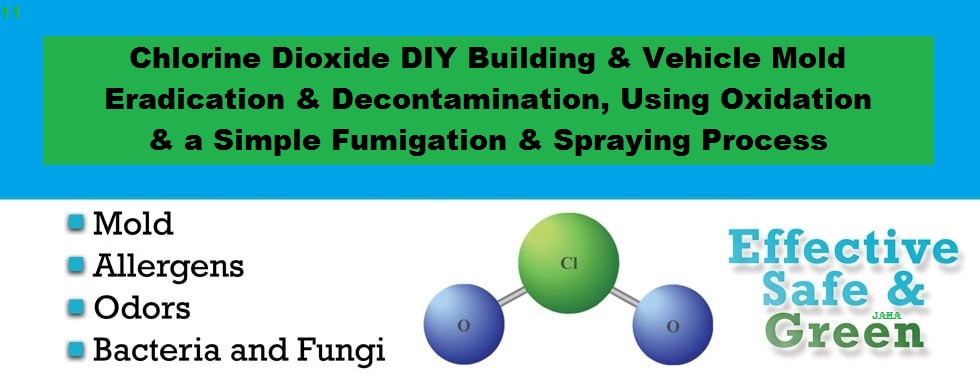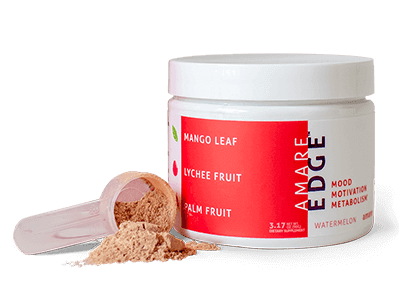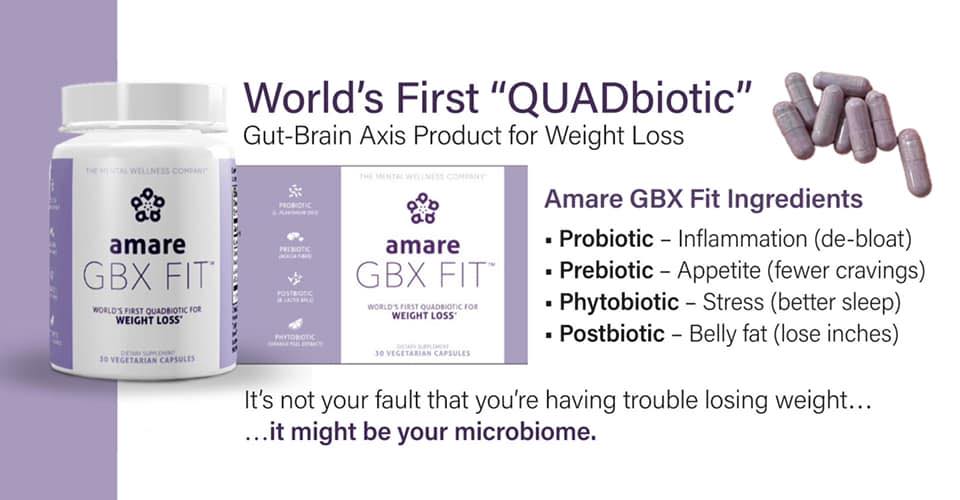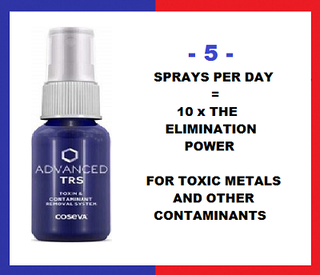15 Habits of People With Concealed Depression
If you or someone you care about is suffering from concealed depression either get help or offer a helping hand. Fighting this alone is not easy or productive. The world can be a wonderful place if you get the help you need nothing can stand in your way. You are not a burden to others and the people who love and care about you want to help you, let them.
Depression is a very serious mental illness that often goes unnoticed for years. People with concealed depression are battling demons within themselves all on their own. They are not sharing their struggles and do not want to burden those around them.
You see, for most people wounds are not something we are open about. We tend to bottle things up and attempt to remedy them on our own. If you are reading this then you must know someone who you feel you need to better understand or you relate to this yourself. The following 15 habits are some of the most common I have noticed in people dealing with concealed depression.
1. The are often quite talented and very expressive.
Alot of famous people have suffered from mental illnesses, and this suffering gives them deeper emotions. If you really think about it, this is in some form a source to their greatness. While we cannot always see it, their struggles are often reflected in their works. These people are able to bring something beautiful out of the darkness that consumes them.
2. They tend to search for purpose.
We all need a purpose in this life. We want to be sure that we are in some form doing meaningful things. People suffering from hidden depression are not exempt from this. They too want to know the reason for their existence. They are much more susceptible to feeling things like inadequacy and anxiety which leaves them searching for something they can never seem to achieve in their own minds.
3. Sometimes they make muted cries for help.
Sometimes we all need help. When we are not expecting someone to feel weak or to be down in the dumps, we don’t see their cries for help. However, if you notice their cries and can help them in any way, you are creating a very close and trust filled bond with them.
4. They interpret substances differently.
Someone who is dealing with depression usually knows what it is they can take to ease their pain in a sense. They know that caffeine and sugar will raise their mood and that some medicines can help them. They actually have to put a lot of effort into feeling better, unlike most people. It is not as simple as taking a Tylenol when you have a headache.
5. They often have a very involved perception of life and death.
People suffering from depression often face their own mortality in moments of despair and seek answers to life’s deepest questions. They tend to shift from one terrible mindset into another. Sure, not all depressed people deal with suicidal thoughts, but some do.
6. They have strange eating habits.
People with depression may not be able to eat much or at all when they are at their worst. That being said some of them may eat more when at their worst. It varies from person to person.
7. They have abnormal sleeping habits.
People with depression will often sleep for what seems like or may literally be days. Sleep at times can be impossible while other times could be the only thing left that the person can do. When a person is depressed they are dealing with a state of helplessness that will rock their world.
8. They have abandonment issues usually.
If you have dealt with abandonment then you know how terrible it can be. When someone walks out of your life it can be a devastating, but this impacts those with depression much more than other people. It causes them to be more and more secretive about their feelings and creates a fear within them of being abandoned by their loved ones.
9. They are professionals at coming up with ‘cover-up’ stories.
They are able to come up with believable elaborate excuses for the things they are going through. Like if they skip an appointment or don’t return your calls for days. They can easily change the subject when things like this come up and turn the attention away from their pain.
10. They might have habitual remedies.
There are several different lifestyle changes a person can make as an attempt to ease their minds. For instance, these people may do things like exercise, listen to music, go walking, and so forth.
11. They are aways making efforts to seem happy.
People suffering from depression learn to fake moods. They will often come off as happy and normal on the outside. When they let their inner struggles appear on the outside they feel as if they are bringing others down.
12. They seek love and acceptance.
People with hidden depression are not hiding their depression because they want to be dishonest, they are just working to protect their hearts. These people want to be loved and accepted just like everyone else.
13. They have trouble shutting off their brains.
These people process everything going on in their lives at a fast speed. They over analyze the good and the bad making everything impact them much deeper. Their brains are like sponges absorbing everything that comes their way.
14. They hurt when other people hurt.
When other people are suffering it brings them down to their worst points. This sort of thing often triggers their emotional pain and can be crippling.
15. They always think of the worst-case scenarios.
While this is very stressful it can be beneficial from time to time. A high intelligence seems to be linked with depression, and they are able to respond to anything that comes their way. This makes them good problem solvers for the most part.
13 Natural Remedies for Depression
Diet:1. Eat a Healthy and Well-Balanced Diet
You may be surprised to learn that your food choices can have a significant impact on your mood. It’s key to eat foods that support your neurotransmitters, which are the brain’s messengers that control your mood, energy levels, appetite and several other functions in the body. Neurotransmitters are significantly influenced by the foods you put into your body.
A 2009 study published in the British Journal of Psychiatry examined the association between dietary patterns and depression. There were 3,486 participants who fell into one of two dietary categories. The first was those who ate a whole food diet, heavily loaded by vegetables, fruits and fish. Second was those who ate processed foods. These foods included sweetened desserts, fried food, processed meat, refined grains and high-fat dairy products. After five years, the participants were assessed. Researchers found that those who stuck to the whole food dietary pattern had lower odds of depression. In contrast, high consumption of processed food was associated with an increased risk of developing depression. (6)
Eating healing foods can be transformative. Here’s a breakdown of the whole foods that should be part of your diet to prevent and treat depression:
2. Avoid Refined Carbohydrates and Sugars
Have you ever wondered why you crave refined carbohydrates and sugars when you’re feeling sad? If you tend to reach for the cookies or potato chips in tough moments, it’s because high carbohydrates foods trigger a release of serotonin, a natural opioid that acts in the brain similarly to the drug opium. Although these foods are improving your mood for the moment, they are also leading to weight gain, issues with sleep, candida overgrowth and low energy levels, making your depression symptoms worse. (11)
An investigation conducted at Baylor College of Medicine in Texas found that sugar consumption rates were correlated with the annual rate of major depression. (12) And a systematic review published by the American Public Health Association found that there is a significant relationship between unhealthy dietary patterns (such as eating a “Western diet” that’s made up of mostly processed foods) and poorer mental health in children and adolescents. (13) Diets that are high in refined sugars are actually harmful to your brain because they promote inflammation and oxidative stress.
To reduce depressive symptoms by supporting the health of your brain and balancing your hormones, avoid eating packaged and processed foods that are made with refined carbohydrates and sugars. Stick to real, whole foods that are in their natural forms.
3. Supplements: Fish Oil
Omega-3 fats are critical for neurotransmitter function, an important component for emotional and physiological brain balance. Research published in CNS Neuroscience Therapeutics analyzed three studies that involved the treatment of depression with omega-3 fatty acids. One study compared the benefits of omega-3 therapy to placebo therapy, another study tested the effects of omega-3s on children with depression and the third study was an open-label trial using EPA to treat bipolar depression. Researchers found that omega-3s showed highly significant effects. For example, in the open-label study involving people with bipolar depression, patients who completed at least one month of follow-up achieved a 50 percent or greater reduction of depression symptoms. (14) Fish oil supplements are a great way to ensure you are getting enough omega-3 fats.
4. Probiotics
Research shows that probiotic supplements can improve mental outlook, which is due to the gut-brain connection. Probiotics aid nutrient absorption and promote glycemic control, helping to avoid spikes and drops in blood sugar levels. But most importantly, studies show that there are direct lines of communication from the gut to the brain, so taking probiotics actually changes your behavior and brain chemistry, thereby improving cognitive function and reducing depressive symptoms. (15)
A 2017 study illustrated the correlation between gut health and depression. Researchers analyzed 44 adults with IBS (irritable bowel syndrome) and mild to moderate anxiety or depression. Half of the group took a probiotic (specifically Bifidobacterium longum NCC3001), and the other was given a placebo. Six weeks after taking probiotics daily, 64 percent of the patients taking the probiotic reported decreased depression. Of the patients taking a placebo, only 32 percent reported decreased depression. (16)
5. Vitamin D3
A systematic review and meta-analysis evaluating the efficacy of vitamin D supplement as a natural remedy for depression found that vitamin D supplementation was favorable in the management of depression because it changed vitamin levels in a way that’s comparable to antidepressant medications. (17)
Vitamin D acts like a hormone in the body and effects brain function, which is why a deficiency is linked to an increased risk for mood disorders, including depression andseasonal affective disorder (or “winter depression”), a form of depression that comes and goes in a seasonal pattern.
6. Adaptogen Herbs
Adaptogen herbs are a class of healing plants that improves stress hormones and relax the nervous system. They help to balance and protect the body by reducing cortisol levels when your under any type of stress.
Two adaptogens that work as natural remedies for depression include rhodiola and ashwagandha. Rhodiola works by increasing the sensitivity of your neurons, including two neurotransmitters serotonin and dopamine. These neurotransmitters help to increase focus and memory, and improve mood. Ashwagandha works to combat the effects of stress, reduce anxiety and depression and balance hormones. But the best part about these natural remedies for depression is that there are no adverse side effects, as opposed to most antidepressant medications. (18)
7. B-Complex
B vitamins are involved in neurotransmitter function and research shows that low levels of both folate and vitamin B12 levels, in particular, are linked to depressive symptoms. This is especially true for patients who have been treated with lithium and those with alcoholism. (19)
Vitamin B12 supports the neurological system and boosts energy levels, and folate supports nutrient absorption, helps to reduce irritability and fights fatigue. Taking a B-complex vitamin will help to produce serotonin naturally and relieve depressant symptoms, without the need for medications or toxic sugary foods.
8. St. John’s Wort
Several studies show that St. John’s wort can help to fight mild to moderate depression and anxiety. St. John’s wort works as a natural remedy for depression that can be compared to the efficacy of selective serotonin reuptake inhibitors (SSRIs), a common type of antidepressant that’s prescribed today. Plus, research shows that St. John’s wort has fewer side effects than standard antidepressants. (20)
Although researchers aren’t exactly sure how St. John’s wort works to fight depression, it’s believed that it may be associated with the herb’s ability to make more serotonin, dopamine and norepinephrine available in the brain. This is important because these three neurotransmitters help to boost mood and improve the symptoms of depression. Also, if you choose to use St. John’s wort as a natural remedy for depression, do it only under the guidance of your health care provider.
9. Essential Oils: Lavender Oil
Lavender oil helps to relieve stress, promote a feeling of peace and improve sleep. It actually has a long history of medicinal use for mood disorders because it has sedative and calming properties. Studies show that lavender oil also has neuroprotective effects. It enhances dopamine receptors and works as an antioxidant. (21)
To use lavender oil as a natural remedy for depression, add 5–10 drops to warm bath water, diffuse 5–10 drops in your bedroom at night to promote sleep, and apply 2–3 drops topically to the temples, chest and wrists in the morning.
10. Roman Chamomile
Roman chamomile essential oil works as a mild sedative that naturally calms nerves and promotes relaxation. Research shows that Roman chamomile oil can be used alone or in combination with lavender oil to improve sleep quality and reduce anxiety. (22)
To use Roman chamomile as one of your natural remedies for depression, inhale the vapors directly from the bottle a few times a day, apply 2–3 drops topically to your wrists and back of neck, or diffuse 5–7 drops at home or at your workplace.
Depression is a very serious mental illness that often goes unnoticed for years. People with concealed depression are battling demons within themselves all on their own. They are not sharing their struggles and do not want to burden those around them.
You see, for most people wounds are not something we are open about. We tend to bottle things up and attempt to remedy them on our own. If you are reading this then you must know someone who you feel you need to better understand or you relate to this yourself. The following 15 habits are some of the most common I have noticed in people dealing with concealed depression.
1. The are often quite talented and very expressive.
Alot of famous people have suffered from mental illnesses, and this suffering gives them deeper emotions. If you really think about it, this is in some form a source to their greatness. While we cannot always see it, their struggles are often reflected in their works. These people are able to bring something beautiful out of the darkness that consumes them.
2. They tend to search for purpose.
We all need a purpose in this life. We want to be sure that we are in some form doing meaningful things. People suffering from hidden depression are not exempt from this. They too want to know the reason for their existence. They are much more susceptible to feeling things like inadequacy and anxiety which leaves them searching for something they can never seem to achieve in their own minds.
3. Sometimes they make muted cries for help.
Sometimes we all need help. When we are not expecting someone to feel weak or to be down in the dumps, we don’t see their cries for help. However, if you notice their cries and can help them in any way, you are creating a very close and trust filled bond with them.
4. They interpret substances differently.
Someone who is dealing with depression usually knows what it is they can take to ease their pain in a sense. They know that caffeine and sugar will raise their mood and that some medicines can help them. They actually have to put a lot of effort into feeling better, unlike most people. It is not as simple as taking a Tylenol when you have a headache.
5. They often have a very involved perception of life and death.
People suffering from depression often face their own mortality in moments of despair and seek answers to life’s deepest questions. They tend to shift from one terrible mindset into another. Sure, not all depressed people deal with suicidal thoughts, but some do.
6. They have strange eating habits.
People with depression may not be able to eat much or at all when they are at their worst. That being said some of them may eat more when at their worst. It varies from person to person.
7. They have abnormal sleeping habits.
People with depression will often sleep for what seems like or may literally be days. Sleep at times can be impossible while other times could be the only thing left that the person can do. When a person is depressed they are dealing with a state of helplessness that will rock their world.
8. They have abandonment issues usually.
If you have dealt with abandonment then you know how terrible it can be. When someone walks out of your life it can be a devastating, but this impacts those with depression much more than other people. It causes them to be more and more secretive about their feelings and creates a fear within them of being abandoned by their loved ones.
9. They are professionals at coming up with ‘cover-up’ stories.
They are able to come up with believable elaborate excuses for the things they are going through. Like if they skip an appointment or don’t return your calls for days. They can easily change the subject when things like this come up and turn the attention away from their pain.
10. They might have habitual remedies.
There are several different lifestyle changes a person can make as an attempt to ease their minds. For instance, these people may do things like exercise, listen to music, go walking, and so forth.
11. They are aways making efforts to seem happy.
People suffering from depression learn to fake moods. They will often come off as happy and normal on the outside. When they let their inner struggles appear on the outside they feel as if they are bringing others down.
12. They seek love and acceptance.
People with hidden depression are not hiding their depression because they want to be dishonest, they are just working to protect their hearts. These people want to be loved and accepted just like everyone else.
13. They have trouble shutting off their brains.
These people process everything going on in their lives at a fast speed. They over analyze the good and the bad making everything impact them much deeper. Their brains are like sponges absorbing everything that comes their way.
14. They hurt when other people hurt.
When other people are suffering it brings them down to their worst points. This sort of thing often triggers their emotional pain and can be crippling.
15. They always think of the worst-case scenarios.
While this is very stressful it can be beneficial from time to time. A high intelligence seems to be linked with depression, and they are able to respond to anything that comes their way. This makes them good problem solvers for the most part.
13 Natural Remedies for Depression
Diet:1. Eat a Healthy and Well-Balanced Diet
You may be surprised to learn that your food choices can have a significant impact on your mood. It’s key to eat foods that support your neurotransmitters, which are the brain’s messengers that control your mood, energy levels, appetite and several other functions in the body. Neurotransmitters are significantly influenced by the foods you put into your body.
A 2009 study published in the British Journal of Psychiatry examined the association between dietary patterns and depression. There were 3,486 participants who fell into one of two dietary categories. The first was those who ate a whole food diet, heavily loaded by vegetables, fruits and fish. Second was those who ate processed foods. These foods included sweetened desserts, fried food, processed meat, refined grains and high-fat dairy products. After five years, the participants were assessed. Researchers found that those who stuck to the whole food dietary pattern had lower odds of depression. In contrast, high consumption of processed food was associated with an increased risk of developing depression. (6)
Eating healing foods can be transformative. Here’s a breakdown of the whole foods that should be part of your diet to prevent and treat depression:
- Omega-3 foods: Research shows that one of the most important components of your diet in order to prevent or treat mood disorders is omega-3 foods. Your brain lipids are actually composed of fatty acids. Of those those fatty acids, 33 percent belong to the omega-3 family. That means that you need to eat omega-3s in order for your brain to function properly. Omega-3s benefit the brain by promoting communication processes and reducing inflammation. (7) The best omega-3 foods include wild-caught fish like salmon, mackerel, herring and white fish, walnuts, chia seeds, flaxseeds, natto and egg yolks.
- Fruits and Vegetables: A diet high in fruits and vegetables increases your intake of vital nutrients that support your mood. Fruits and veggies high in folate, for example, promote the brain’s metabolic processes and research shows that a folate deficiency can lead to depressive symptoms. (8) Some of the top folate foodsinclude spinach, asparagus, avocado, beets and broccoli. Your body also needs antioxidant foods to combat the biochemical changes that take place when you’re under stress. A study published in the Indian Journal of Psychiatry found that antioxidant therapy for 6 weeks significantly reduced both depression and anxiety scores in observed patients. (9) Some of the top antioxidant foods include blueberries, goji berries, blackberries, cranberries and artichokes.
- Healthy fats: Healthy fats provide important vitamins and minerals that boost energy levels and mood. Plus, eating healthy fats helps to prevent free radical damage that may be associated with depression. But it’s important to understand that not all fats are created equal. In fact, research shows that there’s a detrimental relationship between consuming trans fats (like hydrogenated oils) and depression risk. (10) Stick to eating healthy fats such as avocados, grass-fed butter, coconut oil, extra virgin olive oil and omega-3s like walnuts and flaxseeds.
- Lean Protein: Eating protein is critical for supporting neurological function and balancing hormones. Protein foods also provide energy and boost our mood. We need to consume plenty of protein throughout the day because the amino acids allow for many of the body’s functions. When you don’t eat enough protein, you become fatigued, your immunity weakens and you experience moodiness. The best sources of protein include grass-fed beef, lentils, wild fish, organic chicken, black beans, yogurt, free-range eggs, raw cheese and bone broth protein powder.
- Probiotic Foods: Eating probiotic foods increases energy levels, supports cognitive function and promotes mental wellness. Some of the top probiotic foods include kefir, yogurt, kombucha, miso, raw cheese and fermented vegetables. In fact, a great way to consume probiotics is to drink kombucha every day because it also contains enzymes and B vitamins that boost your energy levels and helps to detoxify your body.
2. Avoid Refined Carbohydrates and Sugars
Have you ever wondered why you crave refined carbohydrates and sugars when you’re feeling sad? If you tend to reach for the cookies or potato chips in tough moments, it’s because high carbohydrates foods trigger a release of serotonin, a natural opioid that acts in the brain similarly to the drug opium. Although these foods are improving your mood for the moment, they are also leading to weight gain, issues with sleep, candida overgrowth and low energy levels, making your depression symptoms worse. (11)
An investigation conducted at Baylor College of Medicine in Texas found that sugar consumption rates were correlated with the annual rate of major depression. (12) And a systematic review published by the American Public Health Association found that there is a significant relationship between unhealthy dietary patterns (such as eating a “Western diet” that’s made up of mostly processed foods) and poorer mental health in children and adolescents. (13) Diets that are high in refined sugars are actually harmful to your brain because they promote inflammation and oxidative stress.
To reduce depressive symptoms by supporting the health of your brain and balancing your hormones, avoid eating packaged and processed foods that are made with refined carbohydrates and sugars. Stick to real, whole foods that are in their natural forms.
3. Supplements: Fish Oil
Omega-3 fats are critical for neurotransmitter function, an important component for emotional and physiological brain balance. Research published in CNS Neuroscience Therapeutics analyzed three studies that involved the treatment of depression with omega-3 fatty acids. One study compared the benefits of omega-3 therapy to placebo therapy, another study tested the effects of omega-3s on children with depression and the third study was an open-label trial using EPA to treat bipolar depression. Researchers found that omega-3s showed highly significant effects. For example, in the open-label study involving people with bipolar depression, patients who completed at least one month of follow-up achieved a 50 percent or greater reduction of depression symptoms. (14) Fish oil supplements are a great way to ensure you are getting enough omega-3 fats.
4. Probiotics
Research shows that probiotic supplements can improve mental outlook, which is due to the gut-brain connection. Probiotics aid nutrient absorption and promote glycemic control, helping to avoid spikes and drops in blood sugar levels. But most importantly, studies show that there are direct lines of communication from the gut to the brain, so taking probiotics actually changes your behavior and brain chemistry, thereby improving cognitive function and reducing depressive symptoms. (15)
A 2017 study illustrated the correlation between gut health and depression. Researchers analyzed 44 adults with IBS (irritable bowel syndrome) and mild to moderate anxiety or depression. Half of the group took a probiotic (specifically Bifidobacterium longum NCC3001), and the other was given a placebo. Six weeks after taking probiotics daily, 64 percent of the patients taking the probiotic reported decreased depression. Of the patients taking a placebo, only 32 percent reported decreased depression. (16)
5. Vitamin D3
A systematic review and meta-analysis evaluating the efficacy of vitamin D supplement as a natural remedy for depression found that vitamin D supplementation was favorable in the management of depression because it changed vitamin levels in a way that’s comparable to antidepressant medications. (17)
Vitamin D acts like a hormone in the body and effects brain function, which is why a deficiency is linked to an increased risk for mood disorders, including depression andseasonal affective disorder (or “winter depression”), a form of depression that comes and goes in a seasonal pattern.
6. Adaptogen Herbs
Adaptogen herbs are a class of healing plants that improves stress hormones and relax the nervous system. They help to balance and protect the body by reducing cortisol levels when your under any type of stress.
Two adaptogens that work as natural remedies for depression include rhodiola and ashwagandha. Rhodiola works by increasing the sensitivity of your neurons, including two neurotransmitters serotonin and dopamine. These neurotransmitters help to increase focus and memory, and improve mood. Ashwagandha works to combat the effects of stress, reduce anxiety and depression and balance hormones. But the best part about these natural remedies for depression is that there are no adverse side effects, as opposed to most antidepressant medications. (18)
7. B-Complex
B vitamins are involved in neurotransmitter function and research shows that low levels of both folate and vitamin B12 levels, in particular, are linked to depressive symptoms. This is especially true for patients who have been treated with lithium and those with alcoholism. (19)
Vitamin B12 supports the neurological system and boosts energy levels, and folate supports nutrient absorption, helps to reduce irritability and fights fatigue. Taking a B-complex vitamin will help to produce serotonin naturally and relieve depressant symptoms, without the need for medications or toxic sugary foods.
8. St. John’s Wort
Several studies show that St. John’s wort can help to fight mild to moderate depression and anxiety. St. John’s wort works as a natural remedy for depression that can be compared to the efficacy of selective serotonin reuptake inhibitors (SSRIs), a common type of antidepressant that’s prescribed today. Plus, research shows that St. John’s wort has fewer side effects than standard antidepressants. (20)
Although researchers aren’t exactly sure how St. John’s wort works to fight depression, it’s believed that it may be associated with the herb’s ability to make more serotonin, dopamine and norepinephrine available in the brain. This is important because these three neurotransmitters help to boost mood and improve the symptoms of depression. Also, if you choose to use St. John’s wort as a natural remedy for depression, do it only under the guidance of your health care provider.
9. Essential Oils: Lavender Oil
Lavender oil helps to relieve stress, promote a feeling of peace and improve sleep. It actually has a long history of medicinal use for mood disorders because it has sedative and calming properties. Studies show that lavender oil also has neuroprotective effects. It enhances dopamine receptors and works as an antioxidant. (21)
To use lavender oil as a natural remedy for depression, add 5–10 drops to warm bath water, diffuse 5–10 drops in your bedroom at night to promote sleep, and apply 2–3 drops topically to the temples, chest and wrists in the morning.
10. Roman Chamomile
Roman chamomile essential oil works as a mild sedative that naturally calms nerves and promotes relaxation. Research shows that Roman chamomile oil can be used alone or in combination with lavender oil to improve sleep quality and reduce anxiety. (22)
To use Roman chamomile as one of your natural remedies for depression, inhale the vapors directly from the bottle a few times a day, apply 2–3 drops topically to your wrists and back of neck, or diffuse 5–7 drops at home or at your workplace.
Using EFT Tapping Solutions for Depression
11. Lifestyle: Build Relationships and Get Support
Because depression is most commonly caused by emotional issues, it can become worse due to lack of positive relationships, low self confidence and lack of purpose. Find a strong community of friends that can support and encourage you, and focus on your spirituality and relationship with God. It’s also helpful to seek counseling with a professional so that you can manage stress and strategize about your treatment methods and goals.
A 2013 study conducted at the University of Michigan found that the “quality of social relationships is a major risk factor for major depression.” Risk of depression was greatest among those with poor overall relationship quality, a lack of social support and social strains. Researchers found that these relationship statuses more than doubled the risk of depression. (23) It seems that personal relationships may be one of the most important natural remedies for depression.
12. Exercise
Exercise gives you a boost of energy, helps you to sleep better and builds confidence. These benefits of exercise will improve depressive symptoms and promote feelings of happiness and self-worth. A 2012 systematic review found that exercise can help to reduce the symptoms of depression, especially when its done in combination with psychological therapies. (24)
Aim to exercise three to five days a week for 20 minutes or more. You can try any type of exercise that you like, such as yoga, pilates, running, barre, burst training and calisthenics. Even taking a walk outside will boost your happy hormones and energy levels. Of the natural remedies for depression, this is one that offers some of the most variety of options to choose from.
13. Spend Time Outdoors
Research shows that improving your vitamin D levels can help to reduce the symptoms of depression. In fact, the relationship between depression and vitamin D deficiency from a lack of sun exposure was first noted over two thousand years ago, according to researchers at the University of South Australia. (25) Aim for spending 10–20 minutes in the sun daily.
Precautions
If you are suffering from depression and want to use these natural remedies for depression to improve your symptoms, do it under the care and guidance of your health care provider or counselor. Don’t be afraid to ask for support, as it’s so important to get help when you need it. But, if you notice any adverse reactions to these natural treatments for depression, or your symptoms become worse, discontinue the use of that remedy and see your health care provider. Also, it may take three to four weeks to see improvements with some of these natural remedies for depression.
Final Thoughts on Natural Remedies for Depression
Because depression is most commonly caused by emotional issues, it can become worse due to lack of positive relationships, low self confidence and lack of purpose. Find a strong community of friends that can support and encourage you, and focus on your spirituality and relationship with God. It’s also helpful to seek counseling with a professional so that you can manage stress and strategize about your treatment methods and goals.
A 2013 study conducted at the University of Michigan found that the “quality of social relationships is a major risk factor for major depression.” Risk of depression was greatest among those with poor overall relationship quality, a lack of social support and social strains. Researchers found that these relationship statuses more than doubled the risk of depression. (23) It seems that personal relationships may be one of the most important natural remedies for depression.
12. Exercise
Exercise gives you a boost of energy, helps you to sleep better and builds confidence. These benefits of exercise will improve depressive symptoms and promote feelings of happiness and self-worth. A 2012 systematic review found that exercise can help to reduce the symptoms of depression, especially when its done in combination with psychological therapies. (24)
Aim to exercise three to five days a week for 20 minutes or more. You can try any type of exercise that you like, such as yoga, pilates, running, barre, burst training and calisthenics. Even taking a walk outside will boost your happy hormones and energy levels. Of the natural remedies for depression, this is one that offers some of the most variety of options to choose from.
13. Spend Time Outdoors
Research shows that improving your vitamin D levels can help to reduce the symptoms of depression. In fact, the relationship between depression and vitamin D deficiency from a lack of sun exposure was first noted over two thousand years ago, according to researchers at the University of South Australia. (25) Aim for spending 10–20 minutes in the sun daily.
Precautions
If you are suffering from depression and want to use these natural remedies for depression to improve your symptoms, do it under the care and guidance of your health care provider or counselor. Don’t be afraid to ask for support, as it’s so important to get help when you need it. But, if you notice any adverse reactions to these natural treatments for depression, or your symptoms become worse, discontinue the use of that remedy and see your health care provider. Also, it may take three to four weeks to see improvements with some of these natural remedies for depression.
Final Thoughts on Natural Remedies for Depression
- Depression is one of the main causes of disability in developed, as well as low and medium income countries, with around 150 million people suffering from depression worldwide.
- But, antidepressant medications come with a slew of side effects and people don’t know where to turn to find a treatment that won’t bring on more health problems.
- However, luckily there are natural remedies for depression like dietary changes, using essential oils for depression, supplementing with vitamin D3 and B vitamins, and making lifestyle changes. Seeking counseling and community support has also proven to be beneficial for people who are suffering from depressive symptoms.
Excerpt from: https://draxe.com/natural-remedies-depression/
Tags: can depression be cured, depression treatment, how to beat depression, how to deal with depression, how to fight depression, how to get over depression, how to overcome depression, natural antidepressants, natural remedies for depression, treatment for depression.
Further Reading: Magnesium: The Safe First Line of Defense for Clinical Depression
Tags: can depression be cured, depression treatment, how to beat depression, how to deal with depression, how to fight depression, how to get over depression, how to overcome depression, natural antidepressants, natural remedies for depression, treatment for depression.
Further Reading: Magnesium: The Safe First Line of Defense for Clinical Depression


